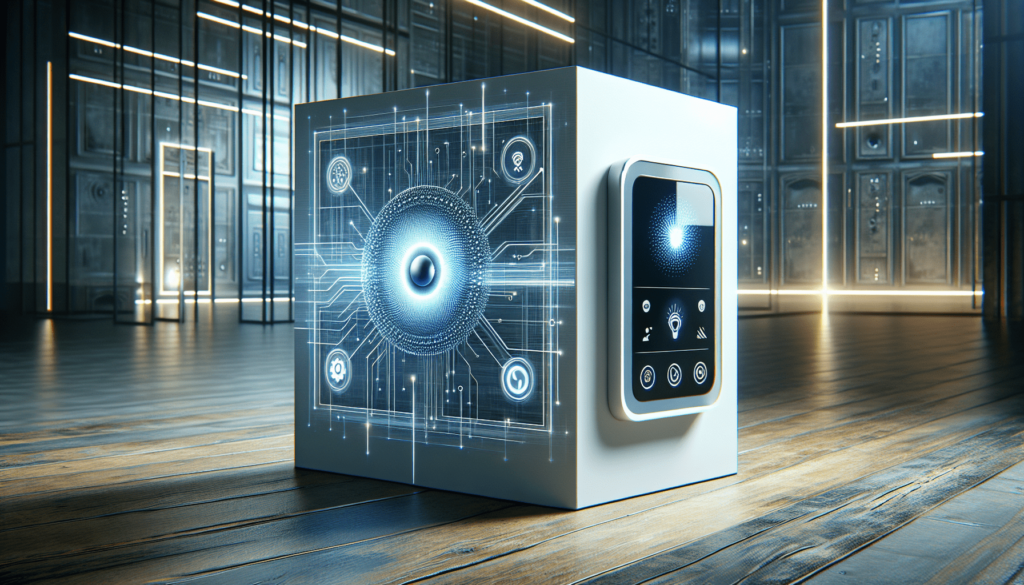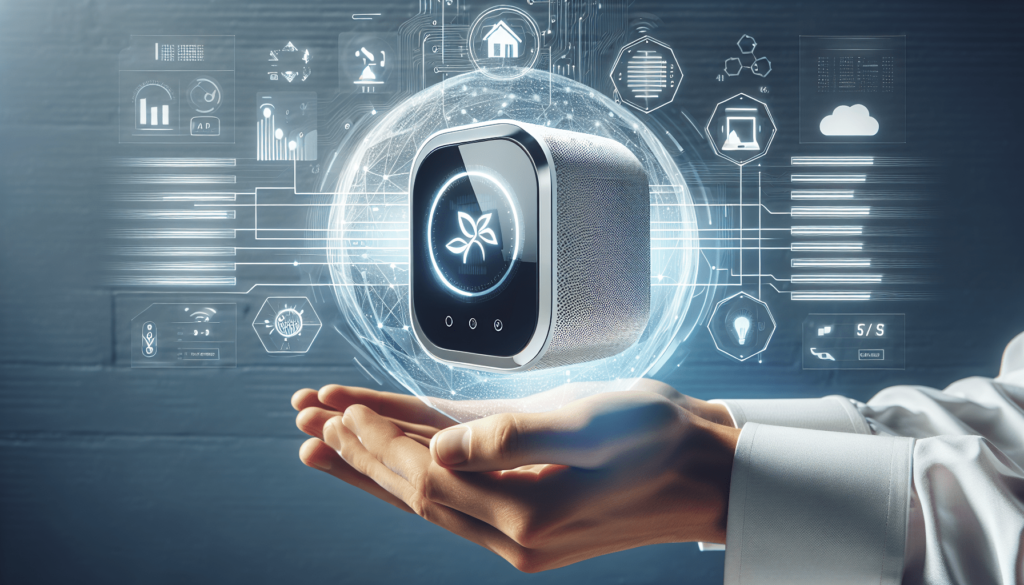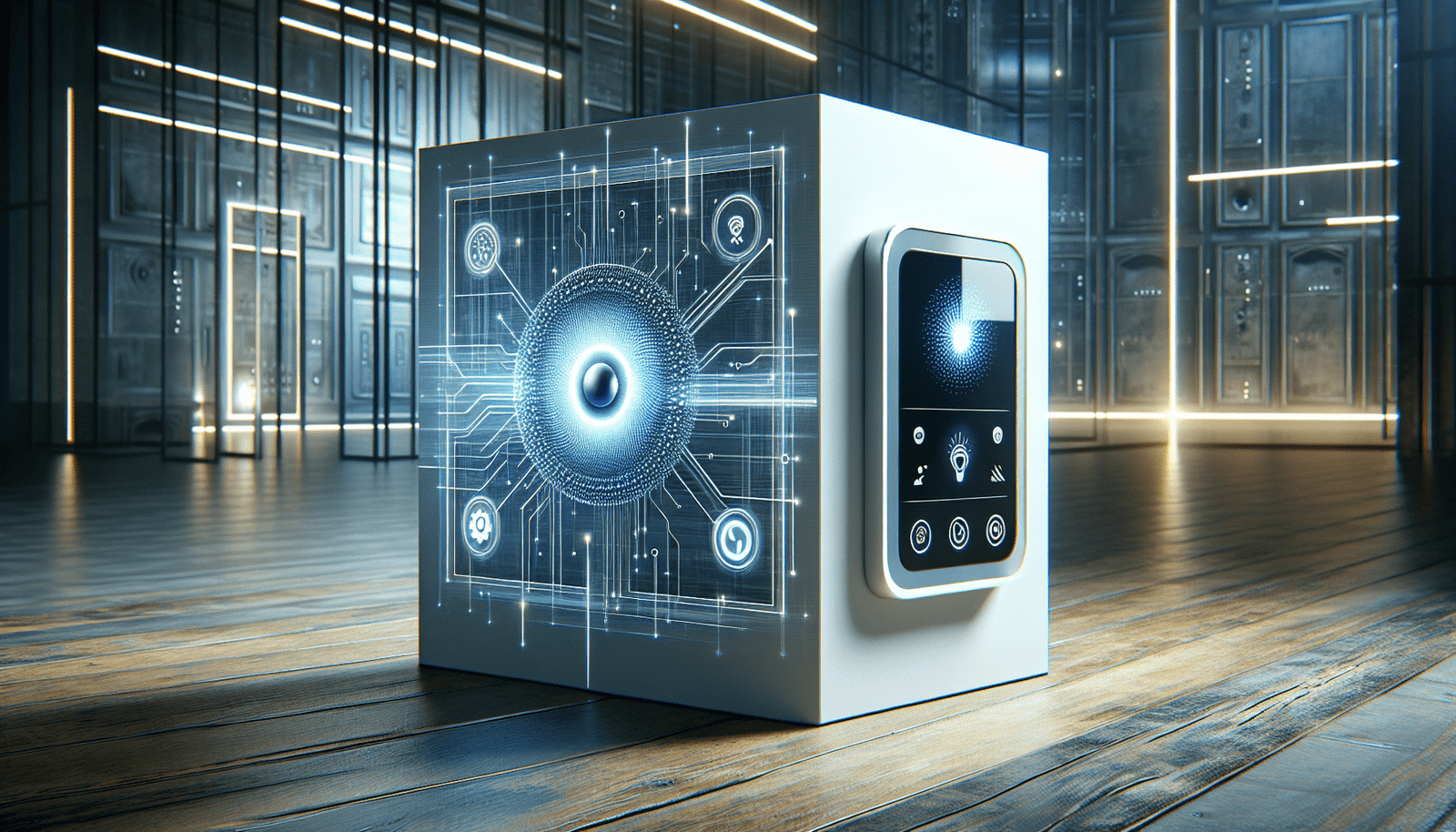Imagine a world where your home knows exactly when you need the lights on, how to optimize your energy usage, and even makes your morning coffee for you. Well, with the rise of smart home devices, this can be your reality. From smart thermostats that learn your temperature preferences to energy-efficient smart appliances, these innovative gadgets are not only convenient but can also help you cut down on your utility bills. In this article, we will explore the top smart home devices that have the potential to save you money in the long run, making your home not only smarter but also more budget-friendly.

Smart Thermostats
Adjusts temperature based on occupancy
Smart thermostats are a great addition to any home as they can help you save money by adjusting the temperature based on occupancy. These devices use sensors to detect if someone is in the room and automatically adjust the temperature accordingly. For example, if you leave the room or go to sleep, the thermostat will lower the temperature to save energy. This feature ensures that you are not wasting energy by heating or cooling an empty room.
Monitors energy usage and provides energy-saving recommendations
In addition to adjusting the temperature, smart thermostats also monitor your energy usage and provide energy-saving recommendations. They track how much energy you are using and provide you with insights and tips on how to reduce your energy consumption. For example, they may recommend lower or higher temperatures during certain times of the day when you are typically away or asleep. By following these recommendations, you can optimize your energy usage and save money on your energy bills.
Can be controlled remotely
One of the most convenient features of smart thermostats is the ability to control them remotely. Whether you are at work, on vacation, or simply in another room, you can easily adjust the temperature using your smartphone or other connected devices. This means that you can turn down the heat or air conditioning when you are not at home, and then remotely turn them back on when you are on your way back. This feature allows you to save money by not wasting energy while you are away.
Smart Lighting
Turns off lights when not in use
Smart lighting systems are designed to automatically turn off lights when they are not in use. They use motion sensors to detect if someone is in the room, and if no motion is detected for a certain period of time, the lights will automatically turn off. This ensures that you are not wasting electricity by leaving lights on when no one is using the room.
Adjusts brightness based on natural light
Another great feature of smart lighting is that it can adjust the brightness of the lights based on the natural light in the room. The lighting system uses sensors to detect the amount of natural light coming in from windows and adjusts the brightness of the artificial lights accordingly. This not only saves energy by reducing the need for artificial lighting but also creates a comfortable and well-lit environment.
Offers energy-efficient LED lighting options
Smart lighting systems often come with energy-efficient LED lighting options. LED lights are much more energy-efficient than traditional incandescent or fluorescent bulbs, consuming significantly less electricity while providing the same level of brightness. By using LED lighting options in your home, you can save money on your energy bills while also helping the environment by reducing your carbon footprint.
Smart Power Strips
Automatically powers down devices when not in use
Smart power strips are an excellent solution for minimizing energy waste caused by devices that are left on standby or continue to draw power even when not in use. These power strips can monitor the energy usage of connected devices and automatically shut off power to them when they are not in use. This helps to eliminate energy vampires and save you money on your energy bills.
Provides surge protection
In addition to energy-saving features, smart power strips also provide surge protection. Power surges can occur at any time, and they can cause damage to your electronic devices. Smart power strips have built-in surge protectors that can detect when a power surge occurs and divert the excess voltage away from your devices, preventing damage and costly repairs.
Offers individual control of connected devices
Smart power strips allow you to have individual control over the devices that are connected to them. This means that you can turn off power to specific devices while leaving others on, depending on your needs. For example, you can turn off power to your computer and printer when you are not using them, while still keeping your modem and router powered on. This level of control helps you save energy and only use power where it is needed.

Smart Water Leak Detectors
Detects leaks and alerts homeowners
Water leaks can be costly and cause significant damage to your home. Smart water leak detectors are designed to detect leaks and alert homeowners before they become a major problem. These detectors use sensors to monitor the water flow in your pipes and can detect even the smallest leaks. If a leak is detected, they will send an alert to your smartphone or other connected devices, allowing you to take immediate action and prevent further damage.
Prevents water damage and costly repairs
By detecting leaks early on, smart water leak detectors can help prevent water damage and costly repairs. Water damage can lead to mold, structural damage, and the need for extensive repairs. By addressing leaks as soon as they are detected, you can minimize the damage and the associated costs, saving you money in the long run.
Monitors water usage for efficient consumption
Smart water leak detectors also monitor your water usage, allowing you to keep track of how much water you are using and identify any unusual patterns. By understanding your water consumption, you can make adjustments to ensure more efficient water usage. This not only saves you money on your water bills but also helps conserve water, which is an increasingly valuable and limited resource.
Smart Appliances
Optimizes energy usage for efficient operation
Smart appliances, such as refrigerators, washing machines, and dishwashers, are designed to optimize energy usage for efficient operation. These appliances use advanced sensors and algorithms to determine the most energy-efficient settings and adapt their operation accordingly. For example, a smart refrigerator can adjust its cooling settings based on the contents inside and the outside temperature, ensuring that it consumes only the necessary amount of energy.
Schedules appliance usage during off-peak hours
Another great feature of smart appliances is the ability to schedule their usage during off-peak hours. Off-peak hours are times when the energy demand is lower, leading to lower electricity rates. By scheduling your appliances to run during these periods, you can take advantage of the lower rates and save money on your energy bills.
Notifies when maintenance or repair is required
Smart appliances can also notify you when they require maintenance or repair. They can monitor their own performance and detect any issues or abnormalities. If something is wrong, they will send you a notification, allowing you to address the problem before it becomes more serious. By staying on top of maintenance and repairs, you can extend the lifespan of your appliances and avoid costly replacement.
Smart Irrigation Systems
Adjusts watering based on weather conditions
Smart irrigation systems are designed to adjust watering schedules based on weather conditions. These systems use local weather data or sensors to determine if rainfall is expected or if the soil is already saturated. Based on this information, the irrigation system will adjust the watering schedule accordingly. This eliminates the need for manual adjustments and ensures that your lawn and plants are not overwatered, saving water and reducing your water bill.
Avoids overwatering and saves water
Overwatering is a common problem that can lead to the wastage of water and an increase in your water bill. With a smart irrigation system, you can avoid overwatering by ensuring that your lawn and plants receive just the right amount of water they need. By adjusting the watering schedule based on actual weather conditions and the moisture content of the soil, you can save water and promote healthier plant growth.
Provides remote control and monitoring
Smart irrigation systems also offer the convenience of remote control and monitoring. With a smartphone or other connected devices, you can easily adjust the watering schedule, turn the system off or on, and monitor its operation. This allows you to optimize your watering schedule, particularly during times of drought or when you are away from home. You can also receive notifications if the system detects any issues or abnormalities, allowing you to address them promptly.
Smart Energy Monitors
Tracks energy consumption in real-time
Smart energy monitors are devices that track your energy consumption in real-time. They provide you with insights into how much energy you are using at any given moment, allowing you to identify areas of high energy usage and make adjustments accordingly. By monitoring your energy consumption in real-time, you can become more aware of your energy usage habits and make informed decisions to reduce your energy consumption.
Identifies energy wastage and suggests improvements
In addition to tracking your energy consumption, smart energy monitors can also identify areas of energy wastage in your home and suggest improvements. For example, they may identify that certain appliances or devices are consuming excessive energy and recommend replacing them with more energy-efficient alternatives. By acting on these suggestions, you can save money on your energy bills and reduce your carbon footprint.
Monitors energy costs and helps budget effectively
Smart energy monitors not only track your energy consumption but also provide you with information on your energy costs. They can calculate the cost of your energy usage based on your electricity rates and display it in real-time. This allows you to have a better understanding of your energy expenses and helps you budget effectively. By being aware of how much you are spending on energy, you can make adjustments to reduce your consumption and save money.
Smart Window Coverings
Automatically adjusts based on sunlight and heat
Smart window coverings are designed to automatically adjust based on sunlight and heat. They use sensors to detect the intensity of sunlight and the temperature in the room. When the sunlight is too strong or the room becomes too hot, the window coverings will automatically close to block out the sunlight and heat, keeping your home cool and reducing the need for air conditioning. Similarly, when the sunlight is less intense or the room is cool, the window coverings will open to allow natural light in, reducing the need for artificial lighting.
Improves insulation and reduces HVAC usage
By automatically adjusting based on sunlight and heat, smart window coverings also help improve insulation and reduce the need for heating, ventilation, and air conditioning (HVAC). When the window coverings are closed, they act as an additional barrier against heat transfer, keeping the room cooler in hot weather and reducing the need for air conditioning. In colder weather, closed window coverings help to retain heat, reducing the need for heating. This leads to energy savings and lower energy bills.
Offers control through voice commands or smartphone
Smart window coverings offer convenient control through voice commands or smartphone apps. You can easily open or close the window coverings using your voice or with a few taps on your smartphone. This means that you can adjust the coverings from anywhere in your home or even when you are away. By having control over your window coverings, you can optimize the amount of natural light and heat that enters your home, saving energy and money.
Smart Security Systems
Reduces insurance costs with improved home security
Smart security systems can help reduce insurance costs by improving home security. These systems often include features such as motion sensors, door/window sensors, and surveillance cameras that provide enhanced protection against theft and vandalism. Insurance companies recognize the added security provided by these systems and often offer discounts on homeowners’ insurance premiums. By installing a smart security system, you not only protect your home and belongings but also save money in the long run on insurance costs.
Provides remote surveillance and alerts
One of the key benefits of smart security systems is the ability to remotely monitor and receive alerts about your home’s security. With surveillance cameras and sensors connected to your smartphone or other devices, you can keep an eye on your home even when you are not there. If any suspicious activity is detected, such as a break-in or unauthorized entry, you will receive instant alerts, allowing you to take appropriate action or notify the authorities. This remote monitoring and alerts system provides peace of mind and enhances the security of your home.
Integrates with other smart devices for enhanced safety
Smart security systems can also be integrated with other smart devices in your home for enhanced safety. For example, they can work in conjunction with smart lighting systems to turn on lights when motion is detected, giving the appearance that someone is home. They can also integrate with smart door locks, allowing you to lock or unlock your doors remotely. By integrating different smart devices, you can create a comprehensive security system that enhances the safety of your home and saves you money by deterring potential burglaries.
Smart Energy Storage
Utilizes renewable energy sources for reduced reliance on the grid
Smart energy storage systems utilize renewable energy sources, such as solar panels or wind turbines, to store excess energy for later use. These systems capture the energy generated from renewable sources when the demand is low and store it in batteries or other storage mediums. During peak hours or when the renewable energy sources are not generating enough energy, the stored energy is used to power your home, reducing the reliance on the grid and saving you money on your electricity bills.
Stores excess energy for use during peak hours
One of the key advantages of smart energy storage systems is their ability to store excess energy for use during peak hours. Peak hours are times when the demand for electricity is high, which often leads to higher electricity rates. By using the stored energy during these peak periods, you can avoid paying the higher rates and save money on your electricity bills. Additionally, by reducing the demand on the grid during peak hours, you also contribute to a more stable and reliable energy grid.
Reduces electricity bills and carbon footprint
By utilizing renewable energy sources and storing excess energy, smart energy storage systems help reduce electricity bills and carbon footprint. The stored energy can be used to power your home during times when the renewable energy sources are not generating enough energy, reducing the need to draw electricity from the grid. As a result, you consume less electricity from traditional sources, leading to lower electricity bills. Additionally, by relying more on renewable energy, you reduce your carbon footprint and contribute to a cleaner and more sustainable environment.
In conclusion, investing in smart home devices can save you money in the long run. Smart thermostats, lighting, power strips, water leak detectors, appliances, irrigation systems, energy monitors, window coverings, security systems, and energy storage all offer various features that help optimize energy usage, increase efficiency, and reduce wastage. By using these devices, homeowners can save money on energy bills, prevent costly repairs, protect their homes, and contribute to a more sustainable future. With advancements in technology and the increasing availability of these devices, creating a smart home that saves you money has never been easier. So why not make your home smarter and start reaping the benefits today?

